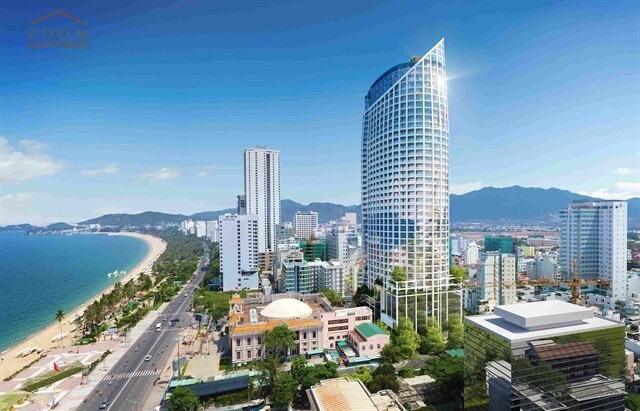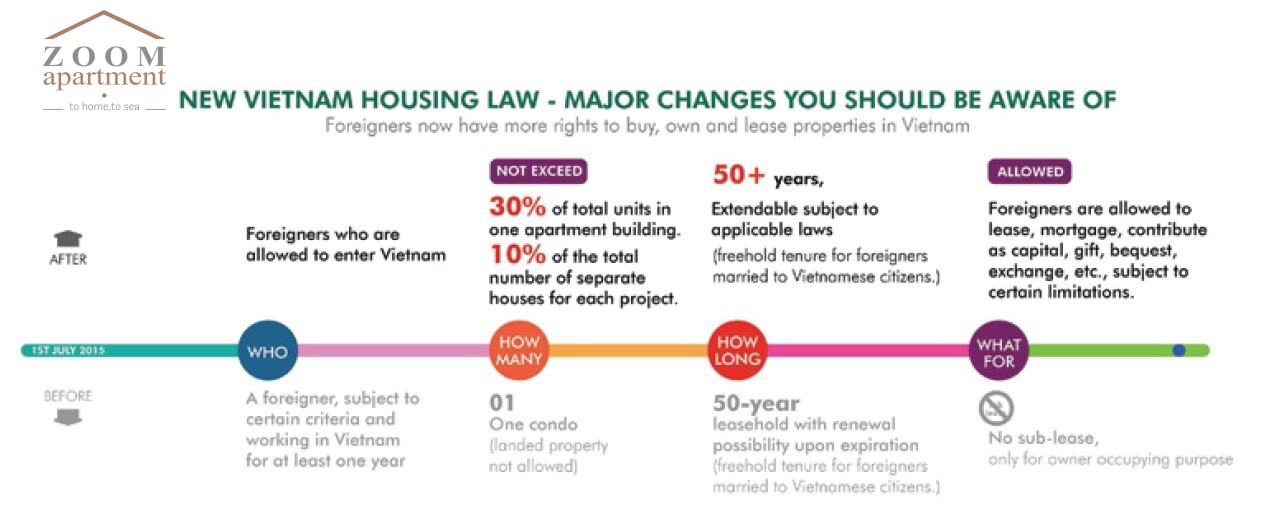An overview of the real estate LAW for foreigners in Vietnam
 Mar 31, 2023|10105 views
Mar 31, 2023|10105 views
Vietnam is a beautiful and rapidly developing country that has attracted many foreign investors and expatriates in recent years. With its vibrant culture, friendly people, and relatively low cost of living, Vietnam is becoming an increasingly popular destination for foreigners looking to purchase property in Southeast Asia. However, purchasing real estate in Vietnam as a foreigner can be a complex process due to certain restrictions and regulations.
The Law on Land 2013 and the Law on Housing 2014 are the primary laws that regulate the ownership and use of real estate in Vietnam. These laws establish the legal framework for land use rights, ownership of real estate, and the rights and obligations of property owners.
Foreigners are allowed to own certain types of real estate in Vietnam, subject to certain restrictions and regulations. The types of real estate that foreigners can own include apartments, houses, and land-use rights.

Apartments
Foreigners are allowed to purchase and own apartments in Vietnam. However, the total number of units owned by foreigners in any building cannot exceed 30% of the total units in the building. This is to ensure that local Vietnamese have priority access to affordable housing. Additionally, there are certain conditions that must be met in order for foreigners to own apartments. These include having a valid visa and passport, being a foreigner legally residing in Vietnam, and complying with Vietnamese tax laws.
Houses
Foreigners are also allowed to own houses in Vietnam, but only for residential purposes. They are not allowed to own houses for commercial purposes, such as for business operations. However, owning a house in Vietnam can be more complicated than owning an apartment, as there are certain restrictions and regulations that must be followed.
For example, the size of the land that a house is built on must not exceed 250 square meters, and the total area of the house must not exceed 500 square meters. Additionally, the house must be used for residential purposes only, and cannot be used for any commercial purposes.
Land-use rights
Foreigners are not allowed to own land in Vietnam. However, they are allowed to own land-use rights , which gives them the right to use the land for a specified period of time, usually up to 50 years. This can be renewed upon expiration.
Land-use rights are different from land ownership, as they do not provide the same level of control and ownership rights as land ownership. For example, land-use rights cannot be used as collateral for loans, and they do not allow the holder to sell or transfer the land to another party without government approval.
Foreigners who wish to purchase land-use rights in Vietnam must follow certain regulations and procedures. For example, they must have a valid visa and passport, and must comply with Vietnamese tax laws. Additionally, they must obtain a land-use rights certificate from the local government, which establishes their legal right to use the land.
Restrictions and regulations
While foreigners are allowed to own certain types of real estate in Vietnam, there are certain restrictions and regulations that must be followed.
One of the main restrictions is that foreigners are not allowed to own real estate in certain areas that are considered sensitive, such as near national borders, military bases, or government buildings. Additionally, foreigners must ensure that the property they are purchasing has clear ownership rights and is not involved in any disputes or legal issues.
Foreigners must also be aware of the potential risks involved in purchasing real estate in Vietnam, such as fraudulent transactions, unclear ownership rights, and disputes over land-use rights. It is recommended that foreigners seek the advice of a local lawyer or real estate expert to ensure that they are following all relevant laws and regulations.
Conclusion
Overall, while foreign ownership of real estate in Vietnam is allowed in certain circumstances, it is important for foreigners to consult with a local lawyer or real estate expert to ensure that they are following all relevant laws and regulations.
You need tologinto comment the article

 0963913137
0963913137 Zalo
Zalo












(*) If any details should be updated, kindly comment below. Fastly we recheck! For future visitors’ benefit, much appreciated!
No comment yet